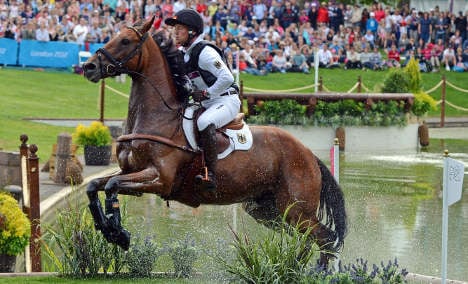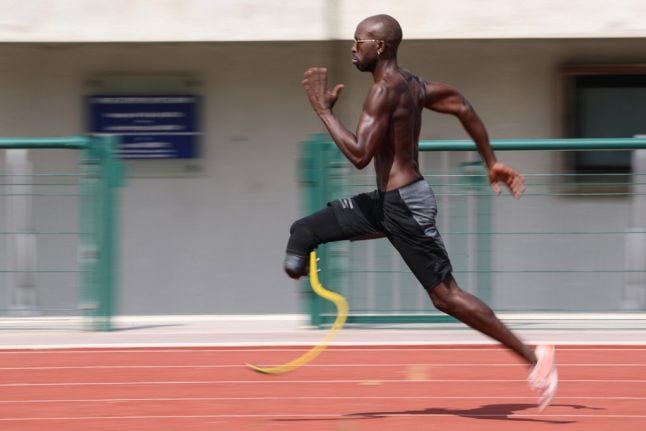In front of a packed stand at Greenwich Park, world champion Michael Jung’s clear round, after equally faultless displays from teammates Dirk Schrade and Sandra Auffrath, gave the 2008 winners an unbeatable lead with 13 riders still to jump.
Jung, celebrating his 30th birthday, said he had not been aware of the significance of a perfect round before entering the ring.
The reigning world and European champion added: “I am really proud and there will be a party later.”
The individual medal was only decided at the end of the day, after the final jump round, when Swedish rider Sara Algotsson-Ostholt knocked down a bar, handing the win to Jung.
The team’s title-clinching performance left the British team which included the Queen’s granddaughter Zara Phillips, and New Zealand, led by charismatic veteran Mark Todd, to fight it out for the runners-up honours.
Germany, favourites to prevail after holding the lead after the opening dressage and Monday’s cross-country, finished with a total of 133.70 points, with Britain on 138.20 and New Zealand 144.40.
Cook, whose horse Miners Frolic almost died of colic last year, added: “My focus was trying to get a clear round, it was so tight at the top.
“The way my horse has come back it’s almost like a fairytale… The vets managed to keep him alive, and here we are!”
Phillips, on her Olympic debut, had excelled in Monday’s cross-country when she was one of only nine riders to go clear, but had a fence down in the ring.
“It was my fault,” she conceded. “I messed up. He (High Kingdom) is a good jumper; he couldn’t get out of where I put him.
“He lost both front shoes in the cross country yesterday, so to come out and do anything for me today was incredible.”
The medals were presented by Phillips’ mother Princess Anne, who competed at Montreal in 1976.
Zara’s father, Mark Phillips, was a member of the last British eventing team to win gold, at Munich four years earlier.
Sideris Tasiadis also secured an Olympic silver for German in the slalom canoe event on Tuesday. It was the 22-year-old’s first Games.
AFP/hc





 Please whitelist us to continue reading.
Please whitelist us to continue reading.
Member comments